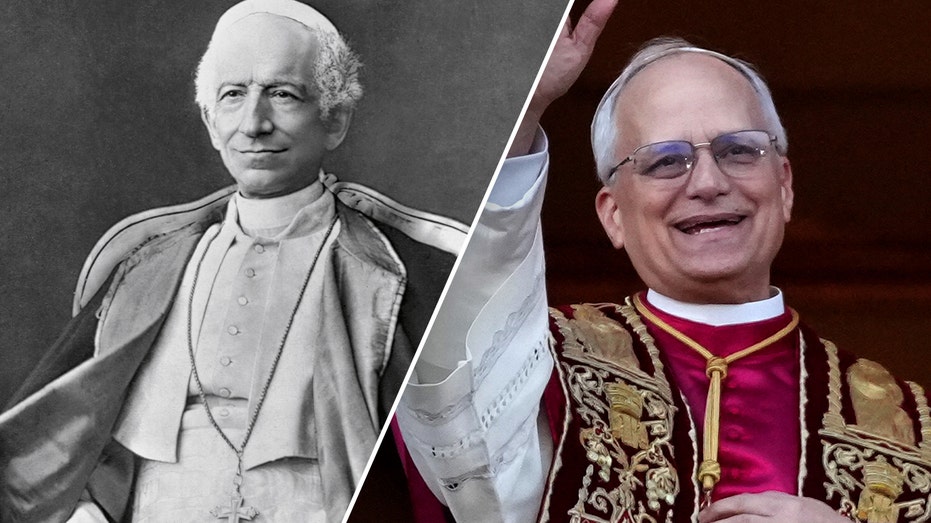In a momentous event in the Roman Catholic Church, Bishop Robert Barron discussed the implications and significance of the name chosen by the newly elected Pope Leo. This election comes amid a period of contemplation on the role and responsibilities of the papacy in modern times. Bishop Barron’s insights shed light on what this name suggests about the new pontiff’s mission and vision.
The name a pope chooses is never arbitrary; it speaks volumes about his intentions, inspirations, and understanding of his role in leading the global Catholic community. Historically, popes have selected names that reflect either their influences or the qualities they hope to embody during their papacy. With the choice of the name Leo, a name steeped in history and tradition within the Church, Bishop Barron suggests we should look back at the legacy of past pontiffs who bore the name.
One of the most significant precedents is Pope Leo the Great, who served as pope from 440 to 461 AD. Known for his theological acumen and leadership, Pope Leo the Great was instrumental in defining key doctrines of the faith, such as the nature of Christ. His efforts helped establish a firm foundation for the Church and contributed to defining its role in the world during turbulent times. This historical context provides a framework for understanding the current Pope Leo’s challenges and aspirations.
Bishop Barron noted that by choosing the name Leo, the new pope may be signaling an intention to uphold the theological rigor and pastoral responsibilities exemplified by his predecessor. In an era marked by rising secularism and increasing moral ambiguity, this decision reflects a determination to engage with contemporary issues while remaining anchored in the Church’s rich doctrinal heritage.
The bishop emphasized that name choices can embody hope and even a blueprint for leadership. The name Leo evokes the image of a strong leader, one who is unafraid to confront challenges while being a shepherd to the faithful. Throughout history, popes with this name have often taken formidable stands on pressing social issues, reminding the Church of its mission to act as a moral compass for society.
Furthermore, Bishop Barron highlighted the pastoral dimension intrinsic to the name Leo. The new pope’s choice may suggest a commitment to pastoral care, seeking not only to teach but also to engage with people at a grassroots level. In a world increasingly polarized by divisions of ideology and belief, a message of compassion and outreach could resonate powerfully with those both inside and outside the Church.
Another vital aspect of the name Leo that Bishop Barron addressed is its connotations of courage and strength, as demonstrated by Pope Leo XIII, who served in the late 19th century and was known for advocating for social justice and the rights of labor. In the face of industrialization and societal upheaval, he sought to articulate the Church’s position on these new and emerging social challenges, which may serve as a model for the new Pope Leo as he navigates contemporary problems like poverty, inequality, and climate change.
In discussing the significance of the papal name, Barron also emphasized the importance of symbols and their potential to inspire both the Church and the broader community. The name Leo could symbolize a renewed focus on rekindling faith among the laity and fostering an environment of dialogue within the Church. This could lead to a renewed understanding of the Church’s mission in the modern world, potentially offering a path toward reconciliation with those who feel estranged from the faith.
The choice of the name Leo is not only a reflection of aspiration and vision, but also a recognition of the responsibilities that come with this title. The bishop’s insights reflect a broader understanding of the challenges the Catholic Church faces today. In an age marked by rapid social change, where new moral dilemmas arise on a daily basis, Bishop Barron’s commentary suggests that the new pontiff is prepared to confront these issues head-on, much like the Leos before him.
In conclusion, the new Pope Leo’s name choice encapsulates a wealth of historical significance and theological depth. Bishop Robert Barron’s reflections offer an optimistic and engaged perspective on the potential implications of this choice. The name Leo symbolizes strength, pastoral care, and a commitment to maintaining the Church’s moral voice in a complex modern world. As the new pope steps into this pivotal role, the implications of his chosen name will likely provide a guiding compass as he addresses the myriad challenges confronting the global Catholic community.
As the Church embarks on this new chapter, it invites believers and observers alike to consider the legacy of Pope Leo and what this name signifies for the journey ahead. Will the new Pope Leo embody the virtues of courage, wisdom, and pastoral care that characterized the distinguished popes who came before him? Only time will tell as he begins his papacy, but the groundwork has been laid for an exciting and transformative period in Church history.































